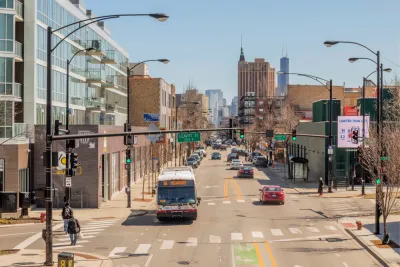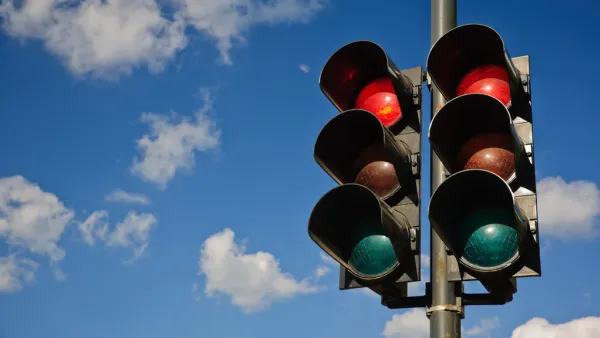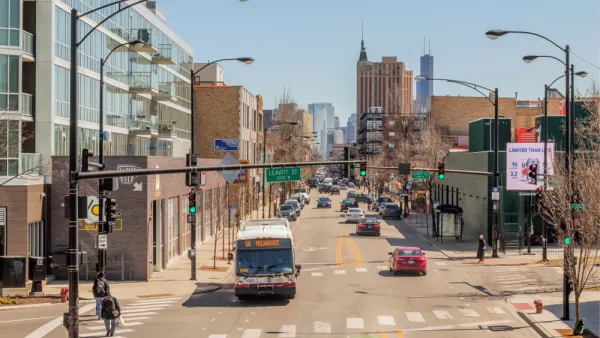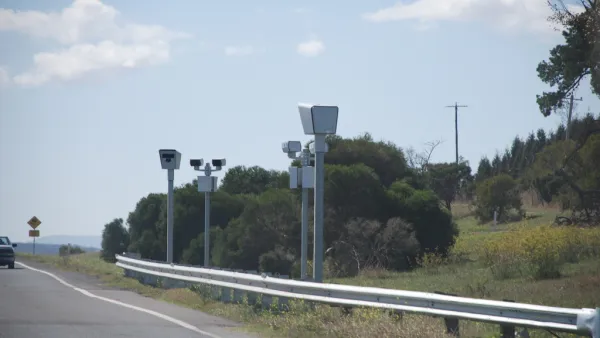Advocates of automated enforcement argue it saves lives, but despite a dramatic rise in speeding tickets, pedestrian fatalities grew in 2021.

Update: The WBEZ article referenced here was corrected by the editors due to errors in reporting and language that stated that the automated enforcement program did not improve safety. Please see their corrections here.
“Last March, Chicago deployed its robo camera system to ticket drivers who sped 6 miles or more above the limit, lowering the threshold from the 10 mph trigger set by former Mayor Rahm Emanuel nearly a decade ago.” A WBEZ article by Michael Gerstein examines the results of the program. “After the threshold went down from 10 to 6 mph, a WBEZ analysis found the number of tickets issued by the city increased dramatically. During the new program’s first full year, the city issued more than 2.34 million speed camera tickets, a roughly 400% increase from the most comparable time period — March 2018 to March 2019, before the pandemic hit, when driving volume had not yet plummeted.” The program brought in close to $106 million since March 2021.
However, “In the year during which the change took effect — 2021 — the number of traffic fatalities actually increased to 173 (compared to 151 deaths in 2020 and 118 in 2019), according to figures cited by the Lightfoot administration.” According to the article, “The average speed of the fastest drivers — those who were ticketed for driving 11-or-more miles per hour over the limit – did not change dramatically.”
While advocates say cameras are a “race-neutral” way to enforce traffic laws, save lives, and reduce the incidence of police encounters, the debate rages on in cities around the country. Some critics of the program call it a cash grab, arguing that it can be “financially crippling” to low-income residents whose neighborhoods, more likely to be located around freeways, tend to have the highest number of cameras. Addressing the question of whether speed cameras disproportionately impact low-income drivers, city comptroller Reshma said in a statement that the city is implementing programs to alleviate financial hardship, such as debt relief for low-income residents.
FULL STORY: Chicago’s speed cameras yield more tickets and fines, but also complaints and controversy

Analysis: Cybertruck Fatality Rate Far Exceeds That of Ford Pinto
The Tesla Cybertruck was recalled seven times last year.

National Parks Layoffs Will Cause Communities to Lose Billions
Thousands of essential park workers were laid off this week, just before the busy spring break season.

Retro-silient?: America’s First “Eco-burb,” The Woodlands Turns 50
A master-planned community north of Houston offers lessons on green infrastructure and resilient design, but falls short of its founder’s lofty affordability and walkability goals.

Test News Post 1
This is a summary

Analysis: Cybertruck Fatality Rate Far Exceeds That of Ford Pinto
The Tesla Cybertruck was recalled seven times last year.

Test News Headline 46
Test for the image on the front page.
Urban Design for Planners 1: Software Tools
This six-course series explores essential urban design concepts using open source software and equips planners with the tools they need to participate fully in the urban design process.
Planning for Universal Design
Learn the tools for implementing Universal Design in planning regulations.
EMC Planning Group, Inc.
Planetizen
Planetizen
Mpact (formerly Rail~Volution)
Great Falls Development Authority, Inc.
HUDs Office of Policy Development and Research
NYU Wagner Graduate School of Public Service




























